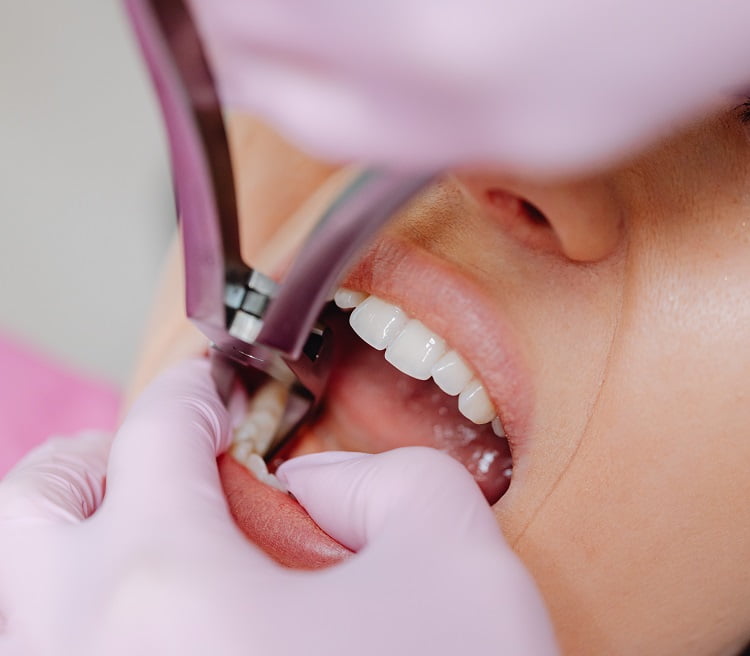
Are you experiencing sensitivity or pain when consuming hot, cold, sweet, or acidic foods and beverages? It could be more than just a random ache coming out of nowhere—your teeth may actually be trying to tell you something!
Tooth pain can be the result of several different dental issues and it’s important to identify the source in order to get proper care that will help alleviate any discomfort.
If you’re wondering what might be causing your pains or aches from time-to-time, this blog post will explore some of the most common causes of toothache so that you have a better understanding and ultimately prioritize visiting your local dental clinic for diagnosis and treatment.
Causes of Tooth Pain: Understanding the Basics
Tooth pain is a common dental complaint that can significantly impact one’s daily life. In order to effectively address and alleviate this discomfort, it is crucial to have a comprehensive understanding of its underlying causes. This section aims to provide a concise yet informative overview of the primary factors contributing to tooth pain, enabling readers to gain a solid grasp of the basics.
Dental Caries
Dental caries, commonly known as cavities, is a prevalent cause of tooth pain. It arises from the progressive breakdown of tooth structure due to the accumulation of plaque and bacteria. When cavities penetrate the enamel and reach the underlying dentin, individuals may experience sensitivity and discomfort.
Periodontal Conditions
Gum diseases such as gingivitis and periodontitis can contribute to tooth pain. These inflammatory conditions affect the gums and supporting tissues around the teeth. As the diseases advance, the underlying tooth structures become exposed, leading to heightened sensitivity and pain.
Dental Hypersensitivity
Tooth sensitivity, characterized by sharp pain or discomfort upon exposure to hot, cold, or sweet stimuli, is another common cause of tooth pain. It often arises from the exposure of tooth roots due to gum recession, enamel erosion, or other factors that compromise the protective layers of the teeth.
Dental Abscess
A dental abscess, characterized by a localized collection of pus, is a serious condition that can result in severe tooth pain. Typically caused by a bacterial infection, an abscess forms in the root of a tooth or the surrounding gum tissue, necessitating prompt dental intervention to alleviate pain and prevent complications.
Bruxism
Bruxism, the habit of grinding or clenching the teeth, can lead to tooth pain and discomfort. This parafunctional activity often occurs during sleep and can exert excessive pressure on the teeth, causing enamel wear, tooth sensitivity, and jaw muscle soreness.
Dental Fractures
Trauma, tooth decay, or biting on hard objects can result in tooth fractures. These cracks in the enamel can expose the delicate inner layers of the tooth, leading to persistent pain and heightened sensitivity.
Quick and Easy Tips When Having A Sudden Toothache
Experiencing a sudden toothache can be a distressing and uncomfortable situation. While it’s crucial to seek professional dental care for a proper diagnosis and treatment, there are steps you can take to manage the pain and discomfort in the interim. This article provides valuable tips to help you cope with a sudden toothache until you can visit a dentist.
Rinse with Warm Saltwater
Gently rinsing your mouth with warm saltwater can help reduce inflammation and alleviate temporary tooth pain. Dissolve half a teaspoon of salt in a glass of warm water and swish the solution around the affected area for 30 seconds before spitting it out.
Use Over-the-Counter Pain Relievers
Over-the-counter pain relievers, such as ibuprofen or acetaminophen, can provide temporary relief from toothache pain. Follow the instructions on the packaging and consult with a healthcare professional if you have any underlying health conditions or concerns.
Apply a Cold Compress
If your toothache is accompanied by swelling or facial pain, applying a cold compress to the affected area can help reduce inflammation and numb the area temporarily. Wrap an ice pack or a bag of ice cubes in a thin cloth and hold it against your cheek for 15 minutes at a time with short breaks in between.
Avoid Triggering Foods and Beverages
Certain foods and beverages, especially hot or cold ones, can exacerbate tooth sensitivity and pain. Temporarily avoid consuming extremely hot or cold items, as well as sugary or acidic foods and beverages that can irritate the affected tooth or gums.
Practice Gentle Oral Hygiene
Maintain your oral hygiene routine by gently brushing your teeth with a soft-bristle toothbrush and using a mild toothpaste. Be cautious around the painful area, and avoid vigorous brushing or applying excessive pressure.
Try OTC Dental Analgesics or Topical Gels
Consider using over-the-counter dental analgesics or topical gels specifically designed to numb toothache pain. These products can provide temporary relief by numbing the affected area. Follow the instructions carefully and consult a pharmacist if you have any questions.
Avoid Self-medication
While it’s tempting to try home remedies or apply substances directly to the affected tooth, it’s important to avoid self-medication. Unapproved substances or DIY remedies can worsen the condition or mask underlying issues, making it harder for a dentist to diagnose the problem accurately.
Seek Professional Dental Care
Remember, these tips are meant to provide temporary relief. It is crucial to schedule an appointment with a dentist as soon as possible to identify and address the root cause of your toothache. A dental professional can provide the appropriate treatment and prevent further complications.
Speaking of professional dental care, our team of dental professionals will be more than willing to give you exceptional service. We understand your pain and we are ready to help you in enjoying a healthier set of teeth. Visit Complete Dental today!

